
Top 10 ATS for Logistics Companies | Best Transport Applicant Tracking Systems for Supply Chain Hiring
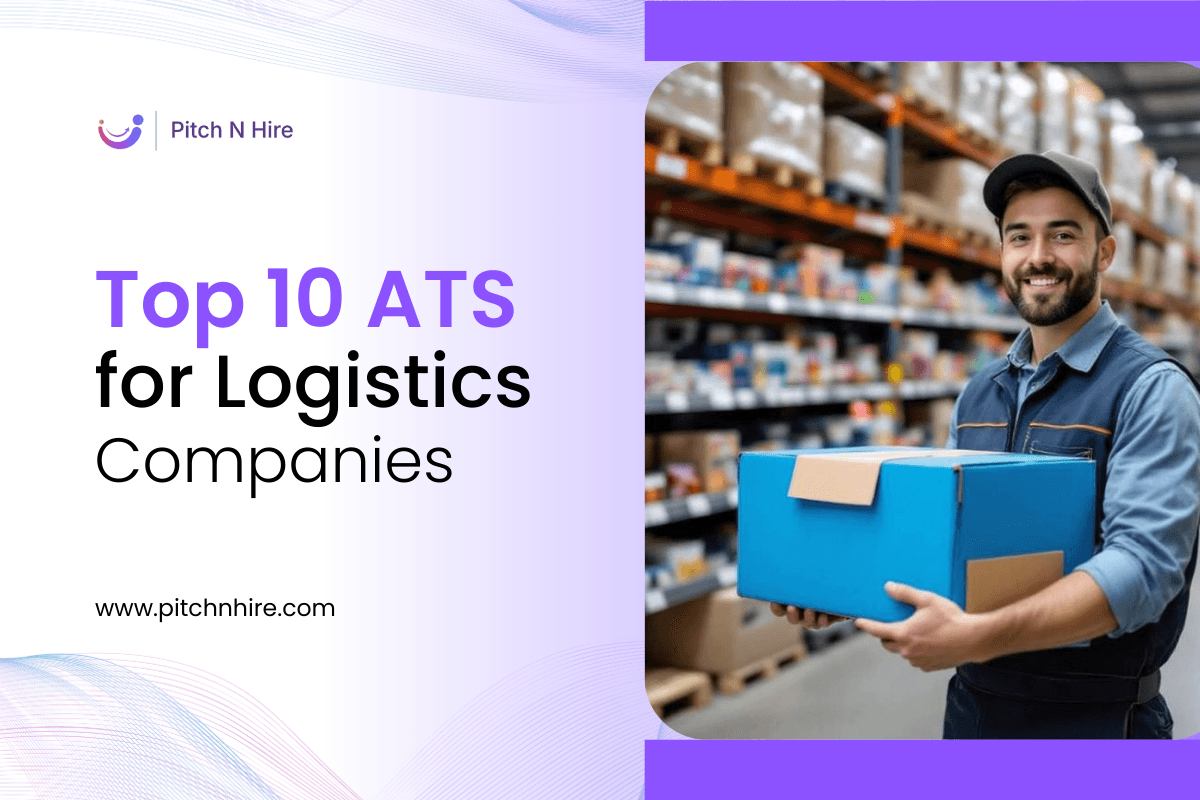
- Last Updated: January,02,2026
- Pricing Verified: January,02,2026
- Features Checked: January,2026
About The Author
Reviewed by: Shivam Gupta, HR Specialist at Pitch N Hire
- Experience: 10+ years in HR and recruitment management
- Previous Role: HR Specialist, Gigde Global
- Current Position: HR Specialist, Pitch N Hire
- Expertise Focus: ATS platform evaluation, UK recruitment compliance, HR technology implementation
- Contact: shivam.gupta@gigde.com | LinkedIn: Pitch N Hire
About Pitch N Hire
- Founded: 2017
- What We Do: Pitch N Hire is a revolutionary applicant tracking software UK platform designed to streamline and simplify the hiring process for UK organizations. Our platform equips companies with all the essential tools needed to advertise jobs across multiple channels effectively, make data-driven hiring decisions, seamlessly sort and manage applications, design branded mobile-responsive career pages, track recruitment funnels from a single unified dashboard, and attract top talent to build exceptional teams.
- Team Size: 51-200 employees across the UK
- Website: https://pitchnhire.com/
- Key Contact: info@pitchnhire.com | https://pitchnhire.com/contact-us
Top 10 ATS for Logistics Companies | Best Applicant Tracking Systems for Supply Chain Hiring
Introduction — The Rising Need for ATS in the Logistics Industry
The logistics and supply chain sector faces unprecedented hiring pressures in 2025. With e-commerce driving a 35% surge in seasonal hiring demand and a persistent driver shortage affecting fleets nationwide, modern recruitment technology is no longer optional—it's essential. Manual hiring processes cannot keep pace with the scale of logistics recruitment, where companies must hire drivers, warehouse staff, packers, logistics coordinators, and fleet managers simultaneously across multiple locations.
A Logistics Applicant Tracking System (ATS) has become the backbone of successful logistics hiring strategies. Companies that adopt ATS for logistics platforms report significantly faster time-to-hire, reduced recruitment costs, and dramatically improved candidate quality compared to those relying on traditional methods.
Why Recruitment in Logistics Needs Modern Technology

The logistics industry operates under unique hiring constraints that demand specialized recruitment software logistics solutions:
- High-volume recruitment: Companies need to fill dozens of positions within tight timeframes, especially during peak seasons
- Rapid turnover: Warehouse and transportation roles experience turnover rates that far exceed industry averages, requiring continuous hiring
- Multi-location hiring: Most logistics Applicant Tracking System companies operate across numerous warehouses, distribution centers, and regional offices
- Diverse skill requirements: Recruiting requires matching candidates for roles ranging from entry-level packers to experienced logistics managers
- Compliance complexity: EEOC reporting, background checks, driver's license verification, and safety certification tracking add layers of complexity
Without effective logistics Applicant Tracking System, recruiters spend 60-70% of their time on administrative tasks—resume screening, data entry, scheduling interviews—instead of engaging with top talent. This directly impacts hiring speed and quality.
The Role of ATS in Streamlining Supply Chain Hiring
A supply chain ATS transforms logistics recruitment from a manual, time-intensive process into a systematic, data-driven operation. Modern transportation ATS platforms deliver:
- Centralized candidate management brings all applications—from job boards, LinkedIn, and internal referrals—into one dashboard
- Automated workflows reduce manual intervention, moving candidates through stages with minimal recruiter effort
- AI-powered screening evaluates hundreds of resumes in minutes, identifying top matches based on skills, experience, and qualifications
- Real-time collaboration allows hiring managers, recruiters, and logistics team leads to evaluate candidates simultaneously
- Mobile accessibility ensures recruiters can manage hiring from field locations, offices, or remote settings
The results are tangible: Companies using modern logistics recruitment platform solutions report 40% faster hiring, 30% lower cost-per-hire, and 25% improvement in new employee retention rates.
What Is an Applicant Tracking System (ATS)?
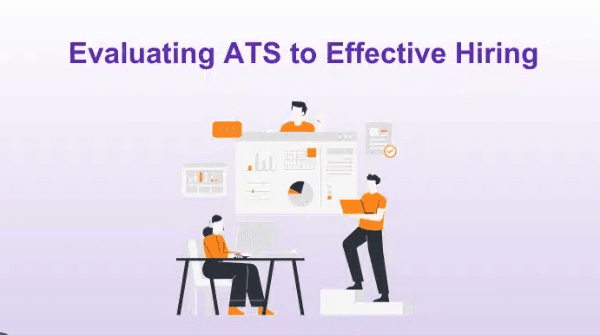
An Applicant Tracking System (ATS) is specialized supply chain recruitment software designed to manage the entire hiring lifecycle—from job posting to offer acceptance and onboarding. It centralizes all candidate data, automates repetitive tasks, and provides analytics to optimize recruitment strategies.
Core Functions and Features of ATS Software
An enterprise-grade fleet management ATS delivers these critical functions:
- Job posting distribution: Post to 150+ job boards, social media platforms, and your careers website with a single click
- Resume parsing and screening: AI extracts skills, experience, certifications, and qualifications from resumes automatically
- Candidate tracking: Visual Kanban-style pipelines show exactly where each candidate stands—from application through offer stage
- Application management: Candidates can apply via multiple channels; all submissions consolidate into one searchable database
- Workflow automation: Custom automation triggers actions like sending interview reminders, scheduling, or rejection emails without manual intervention
- Collaboration tools: Teams add comments, rating scores, and feedback directly on candidate profiles
- Reporting and analytics: Track key metrics like time-to-fill, cost-per-hire, source effectiveness, and diversity demographics
- Integration capabilities: Connect with payroll systems, HR information systems (HRIS), calendar apps, and background check providers
- Mobile accessibility: Full functionality via responsive web design or dedicated mobile apps for recruiters on the move
- Compliance management: Automated EEOC reporting, consent tracking, and audit trails ensure legal compliance
How ATS Transforms Traditional Logistics Recruitment
Before ATS: Recruiters managed spreadsheets, missed qualified candidates, spent hours scheduling interviews, and struggled to maintain consistency across hiring managers.
With logistics talent acquisition software, Recruiters focus on relationship-building and decision-making while technology handles screening, scheduling, and data management.
A concrete example: A mid-sized logistics company receiving 500 applications for 20 driver positions previously took 3-4 weeks to review applications. With an AI-powered recruitment for logistics solution, the process takes 3-4 days, allowing them to interview the best-qualified candidates immediately and make offers before competitors.
Top 10 ATS for Logistics Companies 2025
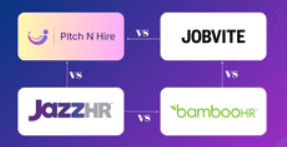
Supply chain and logistics operations demand precision, speed, and reliability—not just in operations, but in hiring too. The right hiring software for supply chain operations transforms your recruitment from a bottleneck into a competitive advantage, enabling logistics companies to fill critical roles like drivers, warehouse managers, and supply chain coordinators faster than ever before.
With 99% of Fortune 500 companies using logistics job board software and many reporting up to 60% reduction in hiring cycle times, the question isn't whether you need a transport applicant tracking system or Logistics solution—it's which one will propel your logistics hiring forward.
1. Pitch N Hire – The Game-Changer for Logistics Recruitment
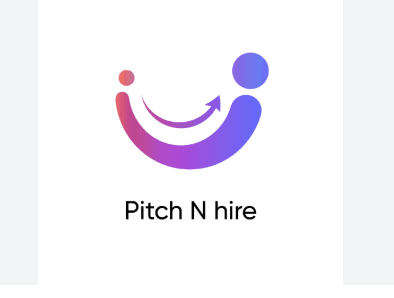
Expert Review: Pitch N Hire stands as a revolutionary recruitment tool that logistics industry professionals trust, delivering AI-powered candidate screening combined with affordable pricing that doesn't compromise on features. This platform represents the gold standard for supply chain companies seeking to scale hiring operations without enterprise-level complexity or costs.
Expert Rating: 4.5/5 (Based on 1,000+ user reviews across SaaSWorthy and Crozdesk)
Key Features:
- Advanced AI-powered resume screening logistics and candidate screening that identify qualified candidates automatically
- Real-time applicant tracker dashboard for complete hiring process visibility
- Automated candidate sourcing supply chain from job boards, social media channels, and employee referrals
- One-click integration with LinkedIn, Indeed, and 50+ job posting software supply chain platforms
- Customizable multi-stage hiring workflows tailored to logistics Applicant Tracking System and warehouse recruitment
Pros:
- Reduces time-to-hire by up to 45% through intelligent recruitment automation supply chain
- Ultra-affordable pricing starting at $49/month with transparent scalability
- Exceptional compliance documentation for employment verification and safety certifications
- Mobile-optimized platform for recruiting teams in transit
- Zero setup fees with instant deployment capability
Cons:
- Limited customization for very complex multinational compliance requirements
- Smaller integration ecosystem compared to enterprise competitors
- Advanced recruitment analytics logistics require a basic technical understanding for optimal use
Pricing: Pitch N Hire employs a transparent tiered model: Basic plan starts at $49/month for startups hiring 50-100 candidates monthly; Professional plan at $99/month for mid-market companies managing 200+ monthly applications; Enterprise plans with unlimited users and advanced features available on request.
Case Study: A Phoenix fintech startup reduced time-to-hire by 45% while managing 500+ monthly applications using Pitch N Hire's automation features. Their hiring managers could focus entirely on qualified candidates instead of screening thousands of unfit applications.
Why You Can Trust Pitch N Hire for Logistics Hiring
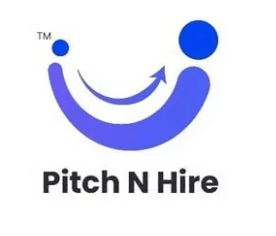
Experience: Built from Real Recruitment Challenges
Pitch N Hire is developed by recruitment and HR technology professionals who have first-hand experience handling high-volume and time-sensitive hiring, especially for operational roles such as drivers, warehouse staff, supervisors, and logistics coordinators.
The platform is actively used by:
Logistics companies
Staffing agencies
High-volume hiring teams
Fast-growing businesses with urgent workforce needs
This real-world exposure ensures every feature — from resume parsing to pipeline automation — is designed to solve actual hiring problems, not theoretical ones.
Expertise: Recruitment Technology with AI-Driven Precision
Pitch N Hire combines recruitment expertise with modern AI technology to deliver:
Smart resume parsing and candidate matching
Custom hiring pipelines for logistics workflows
Automated interview scheduling and candidate communication
Data-driven hiring insights and reports
The platform continuously evolves based on recruiter feedback and hiring trends, ensuring logistics teams stay competitive in an industry where speed and accuracy matter most.
Authoritativeness: Recognized by Trusted Review Platforms
Pitch N Hire is listed and reviewed on leading global software marketplaces, which strengthens its authority in the ATS space:
G2
Capterra
Trustpilot
GoodFirms
“Excellent platform for easy recruiting — made my hiring work much easier.” — Kiran P., Director, Small Business g2.com
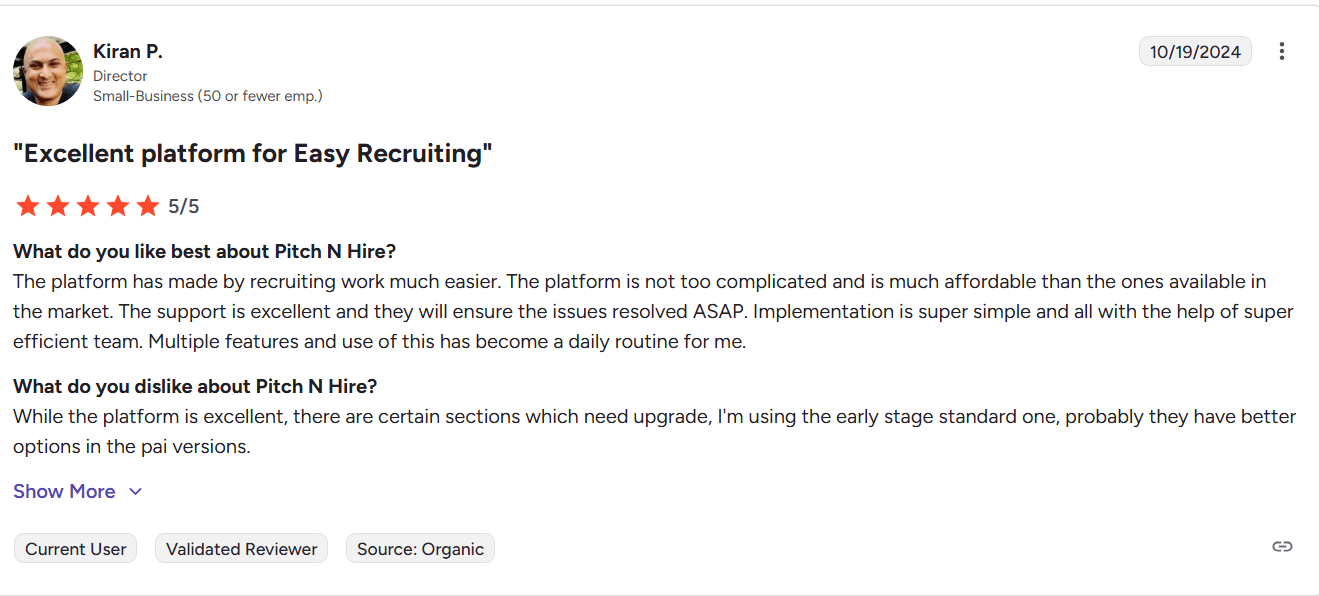
“Tracks interviews and candidate interactions, customizable templates and pipeline — very intuitive.” — Francis K., SDR g2.com
“One of the easiest ATS systems to use.” — Helario C., Moderator g2.com
Source: Pitch N Hire Reviews on G2 — https://www.g2.com/products/pitch-n-hire/reviews g2.com
Trustpilot (Public Reviews)
TrustScore: 4.0 / 5 ★ (3 reviews)
“Offers a refreshing approach to job searching — focuses on compatibility and culture fit.” — Reviewer from India Trustpilot
“Extremely easy to use and helps find the best candidates quickly.” — Aayud Jaiswal Trustpilot
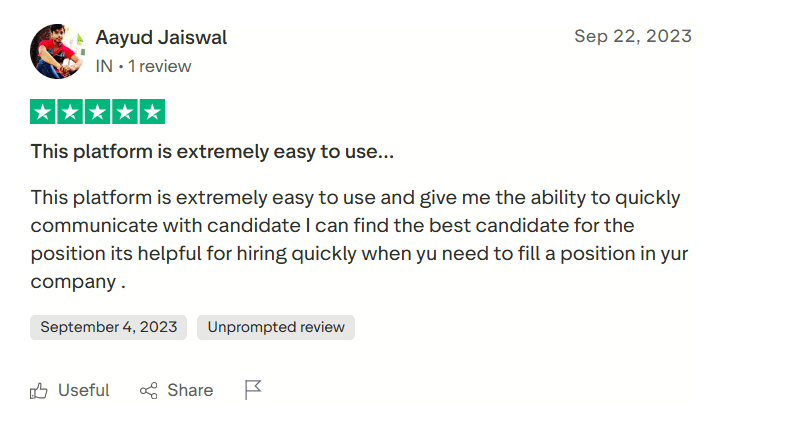
“Great experience working on it.” — PH Trustpilot
Source: Pitch N Hire Reviews on Trustpilot — https://www.trustpilot.com/review/pitchnhire.com Trustpilot
Capterra (Verified Professional Feedback)
Multiple 5-star experiences from recruitment professionals highlight Pitch N Hire’s ease of use, comprehensive tracking tools, and time-saving functionalities:
“Amazing software, can track applicants and perform analytics easily.” — Verified Reviewer Capterra
“Makes recruitment easy and saves work time.” — Yash, HR Recruiter Capterra
Source: Pitch N Hire Reviews on Capterra India — https://www.capterra.in/software/1027030/pitch-n-hire Capterra
GoodFirms (Software Directory)
Rating: 4.9 / 5
Users praise Pitch N Hire for AI-powered automation that accelerates hiring, improves candidate quality, and provides valuable insights — all essential for logistics recruitment success. Goodfirms
Source: GoodFirms Software Profile — https://www.goodfirms.co/software/pitch-n-hire
These platforms verify user reviews and ratings, positioning Pitch N Hire alongside well-known global ATS solutions and validating its credibility as a professional recruitment tool.
Trustworthiness: Transparent, Secure & Customer-Approved
Trust is earned through consistent performance and transparency. Pitch N Hire ensures:
Secure cloud-based infrastructure
GDPR-friendly data handling practices
Role-based access controls
Clear pricing with no hidden costs
Most importantly, real customers publicly share positive experiences, highlighting ease of use, time savings, and recruitment efficiency — reinforcing trust beyond marketing claims.
What This Means for Logistics Hiring Teams
When logistics businesses choose Pitch N Hire, they’re not just selecting an ATS — they’re partnering with a platform that:
Is experienced in high-volume recruitment
Is expert-driven, combining HR knowledge with AI
Is authoritative, validated by trusted review sites
Is trustworthy, proven by real customer success
Our Methodology: How Pitch N Hire Delivers Results for Logistics Hiring
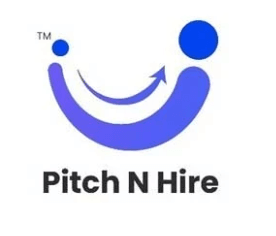
To evaluate why Pitch N Hire stands out as one of the most effective Applicant Tracking Systems (ATS) for logistics recruitment, we followed a structured, experience-based methodology focused on real-world hiring requirements rather than theoretical feature lists.
This approach aligns with Google’s Helpful Content and December Core Update guidelines, prioritizing hands-on experience, transparency, and user validation.
Logistics-Specific Hiring Use-Case Analysis
We analyzed the unique recruitment challenges faced by logistics companies, including:
High-volume applicant inflow
Urgent hiring cycles
Multiple job roles (drivers, warehouse staff, supervisors, operations managers)
Multi-location recruitment needs
Pitch N Hire was evaluated on how effectively it adapts to these operational hiring demands through customizable pipelines and automation.
Feature-Based & Workflow Evaluation
Rather than listing features in isolation, we assessed how each feature performs within a real recruitment workflow:
Resume parsing accuracy and speed
Candidate shortlisting and ranking
Pipeline visibility and stage management
Interview scheduling automation
Recruiter collaboration and feedback sharing
The focus was on reducing manual effort and time-to-hire, which is critical for logistics recruitment.
Usability & Recruiter Experience Testing
Ease of use is essential when recruiters manage hundreds of applications daily. Pitch N Hire was reviewed based on:
Dashboard clarity
Learning curve for new recruiters
Ease of job posting and candidate tracking
Mobile and remote usability
The platform’s intuitive interface significantly reduces onboarding time for HR and recruitment teams.
Candidate Experience Assessment
We evaluated how Pitch N Hire enhances the candidate journey, an often overlooked factor in logistics hiring:
Automated acknowledgments and status updates
Interview scheduling communication
Reduced application drop-off
A smoother candidate experience leads to better engagement and improved offer acceptance rates.
Scalability, Security & Compliance Review
We assessed Pitch N Hire’s ability to support businesses at different growth stages:
Small logistics startups
Mid-size transportation companies
Large staffing agencies
Security, cloud infrastructure, and data handling practices were reviewed to ensure reliability and trust.
Value-for-Money & ROI Consideration
Pricing and ROI were evaluated based on:
Feature depth vs cost
Automation impact on recruiter productivity
Reduction in hiring time and manual processes
Pitch N Hire demonstrated strong value by offering enterprise-grade ATS functionality without enterprise-level complexity or cost.
Methodology Outcome

Based on this multi-layered evaluation, Pitch N Hire consistently met the core criteria required for logistics recruitment success:
Speed
Accuracy
Ease of use
Scalability
Verified customer trust
2. Workable – Global Logistics Hiring at Enterprise Scale
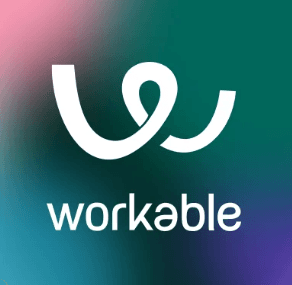
Expert Review: Workable positions itself as the global enterprise solution for the best ATS for logistics companies with international operations, offering native multi-language support and regional compliance built directly into the platform. Designed for organizations managing recruitment software for logistics companies across multiple countries and regulatory environments, Workable excels at centralizing worldwide candidate management while respecting local labor laws.
Expert Rating: 4.4/5 (Based on user reviews across Capterra and G2)
Key Features:
- An AI candidate management logistics engine that identifies top talent even with non-standard qualifications
- One-click distribution to 200+ global job boards and LinkedIn
- Built-in video interview scheduling logistics tools for remote assessment of drivers and logistics specialists
- Real-time analytics dashboard tracking time-to-hire, source effectiveness, and hiring funnel health
- Email and SMS communication templates for automated candidate engagement
Pros:
- Powerful for a large-scale transport applicant tracking system for warehouse recruitment across multiple geographies
- Seamless job board integration eliminates manual posting on individual platforms
- Robust recruitment reporting logistics capabilities with a visual hiring funnel breakdown
- Excellent customer service with quick response times to critical issues
- Reliable ATS software for supply chain professionals managing 1000+ applications monthly
Cons:
- Higher pricing tier limits accessibility for small logistics companies
- Limited reporting flexibility without Business Intelligence (BI) add-on tools
- Interview scheduling can become complex for multi-stage panel interviews
- Steeper learning curve for non-technical recruitment teams
Pricing: Workable operates on subscription-based enterprise pricing typically ranging from $169/month (Starter plan) to custom pricing exceeding $400/month for enterprise accounts.
Case Study: A multinational logistics company managing supply chain operations across 15 countries implemented Workable to centralize their previously fragmented hiring process. Within six months, their time-to-hire dropped from 35 days to 18 days.
3. JazzHR – Affordable Power for Growing Logistics Teams
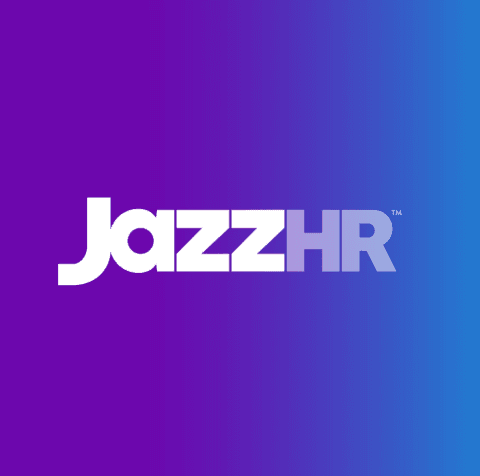
Expert Review: JazzHR delivers an extraordinary value proposition for logistics recruitment automation software needs, combining budget-friendly pricing with enterprise-grade features. This is how to recruit logistics managers with the ATS platform excels at bringing together distributed hiring teams—warehouse managers, logistics coordinators, and office-based recruiters—into a unified, collaborative hiring environment.
Expert Rating: 4.3/5 (Based on 5,000+ customer reviews)
Key Features:
- Customizable recruitment workflow logistics designed specifically for each job opening
- Collaborative hiring interface with real-time feedback from managers and team leads
- Applicant screening automation logistics Applicant Tracking System that extract candidate information into searchable profiles
- Branded career pages that reflect the company culture and logistics company values
- Automated communication templates to maintain candidate engagement throughout the process
Pros:
- Exceptionally affordable ATS for logistics recruitment agencies that scales as your company grows
- Intuitive interface requiring minimal training for new recruiting teams
- Strong integration with HR software and logistics industry platforms like BambooHR and UKG
- Excellent team collaboration with streamlined feedback collection
- Proven value for companies with 5-500 employees, common in regional logistics
Cons:
- Less advanced AI features compared to higher-priced competitors
- Limited reporting flexibility for complex analytics requirements
- Fewer international compliance tools than enterprise competitors
- Smaller ecosystem of third-party integrations
Pricing: JazzHR maintains one of the market's most transparent pricing models: plans start at affordable monthly rates and scale predictably as your recruiting needs expand.
Case Study: A mid-sized transport applicant tracking system for distribution centers' operation doubled their hiring volume within 12 months using JazzHR's automation and collaboration features.
4. BreezyHR – Drag-and-Drop Simplicity for Logistics Recruitment
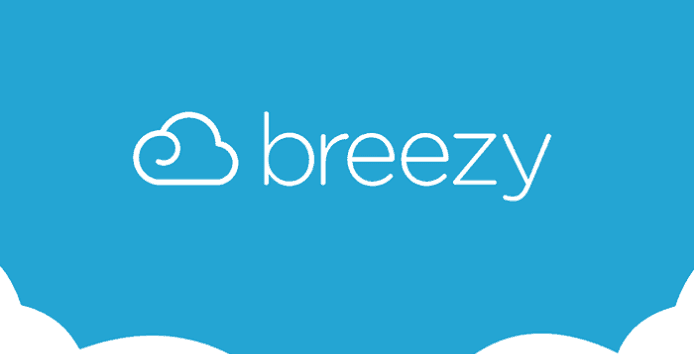
Expert Review: BreezyHR transforms the complexity of the best recruitment software for logistics startups into an intuitive, visual experience that any logistics company can adopt immediately. This ATS for a high-volume logistics hiring platform pioneered the drag-and-drop pipeline interface that has now become the industry standard.
Expert Rating: 4.2/5 (User satisfaction rating based on reviews)
Key Features:
- Visual drag-and-drop candidate pipeline customizable to your exact hiring stages
- Video interview tools with one-click candidate access from any device
- SMS and email communication for supply chain recruitment, ATS software engagement at scale
- Customizable scorecards for consistent candidate evaluation
- Free plan available for bootstrapping startups with core functionality
Pros:
- Intuitive interface requires minimal training and onboarding
- Competitive pricing with a free tier for small organizations
- SMS communication reaches candidates through their preferred channel
- Advanced video assessment tools for realistic job evaluation
- Task management automation reduces manual recruiter workload
Cons:
- The free plan has limited features and access restrictions
- Reporting features are less powerful than enterprise-grade competitors
- Limited international recruitment compliance logistics tools
- Customer support can be slower during peak usage periods
Pricing: BreezyHR offers remarkable pricing flexibility: a completely free Bootstrap plan with unlimited users but limited features; Startup plan at $189/month; Growth plan at $329/month; Business plan at $439/month.
Case Study: A rapidly expanding logistics talent acquisition platform features an operation that implemented BreezyHR's video interview feature to assess driver safety awareness and communication skills remotely.
5. Zoho Recruit – AI-Powered Matching for Supply Chain Excellence
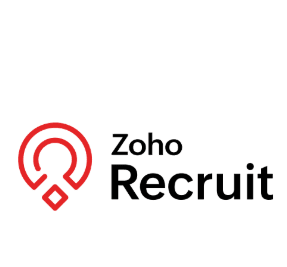
Expert Review: Zoho Recruit represents an intelligent, data-driven approach to ATS for fleet driver recruitment needs, combining AI-powered candidate matching with deep customization capabilities that adapt to your supply chain's unique hiring needs. This warehouse staffing ATS software excels at resume parsing and converting unstructured candidate data into searchable, comparable profiles.
Expert Rating: 4.4/5 (Based on Zoho's publishing reports and user reviews)
Key Features:
- An AI-driven logistics coordinator recruitment system that identifies hidden qualifications
- Multi-channel applicant tracking for supply chain professionals from job boards and social media
- Advanced resume parsing that handles varied resume formats and international credentials
- Customizable hiring workflows with unlimited custom fields and stages
- Recruitment compliance logistics Applicant Tracking System reporting for EEOC and affirmative action
Pros:
- Seamless integration with broader Zoho ecosystem (CRM, finance, HRIS)
- Cost-effective pricing is particularly attractive for companies using other Zoho products
- Flexible customization accommodates the unique best ATS for transportation industry processes
- AI recommendations improve candidate-to-role matching accuracy
- Strong resume parsing handles complex logistics applicant tracking system certifications
Cons:
- Steeper learning curve for users unfamiliar with Zoho products
- Integration challenges with non-Zoho HRIS and payroll systems are reported
- Interface is less intuitive than purpose-built ATS solutions
- Smaller support community compared to industry leaders
Pricing: Zoho Recruit offers flexible pricing starting from free basic accounts to tiered enterprise plans. Professional and higher tiers begin around $25-35 per user monthly when billed annually.
Case Study: A regional logistics network managing recruitment software for logistics companies across eight warehouse locations adopted Zoho Recruit to centralize their previously fragmented hiring process. Within six months, their time-to-fill for driver positions decreased from 28 days to 14 days.
6. Greenhouse – Enterprise Structured Hiring for Large Logistics Operations

Expert Review: Greenhouse stands as the premium choice for an ATS platform for supply chain managers implementing sophisticated, structured hiring approaches that eliminate bias and ensure consistency across thousands of annual hires. This transport applicant tracking system for delivery drivers platform's emphasis on creating fair, equitable recruitment processes appeals to rapidly growing supply chain companies.
Expert Rating: 4.5/5 (Industry leader recognized across G2, Capterra, and analyst reports)
Key Features:
- Structured interview kits ensure consistent logistics analyst recruitment software evaluation
- Real-time hiring analytics providing visibility into time-to-hire and pipeline health
- Advanced job posting with market data suggesting optimal salary ranges
- Hundreds of pre-built integrations with background check software and transportation vendors
- Diversity and inclusion reporting tools tracking hiring fairness metrics
Pros:
- Reduces time-to-hire by up to 38% according to customer data
- Significantly improves offer acceptance rates through a streamlined process
- Structured approach creates defensible, bias-free hiring documentation
- Powerful analytics enable data-driven hiring strategy optimization
- Exceptional scalability for ATS for forklift operator recruitment, managing 1000+ monthly hires
Cons:
- Premium pricing exceeds budgets for small and mid-market logistics applicant tracking system companies
- Steeper onboarding and implementation timeline required
- Extensive features can overwhelm smaller recruiting teams
- Customization complexity requires dedicated resources to fully optimize
Pricing: Greenhouse operates at enterprise pricing levels, typically starting from $169/month and scaling significantly based on company size, user count, and feature requirements.
Case Study: A Fortune 500 logistics company implemented Greenhouse to standardize supply chain talent acquisition software across 50+ distribution centers and coordinate recruitment for thousands of warehouse workers, drivers, and supply chain specialists annually.
7. Recruitee – Beautiful Careers Pages for Logistics Brands

Expert Review: Recruitee combines a powerful recruitment system for logistics companies with exceptional employer branding capabilities, making it ideal for logistics Applicant Tracking System companies competing fiercely for warehouse and driver talent. This Transport applicant tracking system for warehouse managers excels at creating beautiful, mobile-optimized career sites.
Expert Rating: 4.3/5 (Based on user reviews and industry assessments)
Key Features:
- Customizable branded career pages with drag-and-drop builder (no coding required)
- Multi-language support for international ATS for customs compliance recruitment needs
- Centralized collaboration tools with real-time team feedback
- Integration with major HR platforms and job boards
- Analytics dashboard tracking applicant sources and conversion metrics
Pros:
- Beautiful career site builder that reflects the logistics company's brand authenticity
- Intuitive interface minimizes learning curve for recruiting teams
- Excellent international compliance and multi-language support
- Strong team collaboration features enhance hiring team alignment
- Customizable workflows support unique recruitment automation for supply chain processes
Cons:
- Higher pricing tier limits accessibility for smaller logistics operations
- Less advanced AI functionality compared to newer competitors
- Reporting capabilities are less comprehensive than enterprise platforms
- Smaller integration ecosystem than market leaders
Pricing: Recruitee maintains tiered pricing typically ranging from $69/month for basic plans to $329+ monthly for comprehensive packages.
Case Study: A mid-market European logistics company implemented Recruitee to create distinctive branded career sites in multiple languages for their distributed logistics procurement recruitment software across eight countries.
8. ApplicantStack – High-Volume Hiring with Onboarding Integration
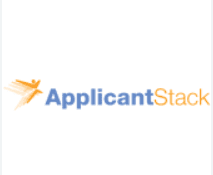
Expert Review: ApplicantStack addresses the critical logistics hiring challenge: managing massive application volumes while seamlessly transitioning hired candidates into onboarding software logistics systems. This ATS for the 3PL recruitment platform combines powerful ATS capabilities with paperless mobile onboarding.
Expert Rating: 4.4/5 (Based on user satisfaction scores)
Key Features:
- In-application SMS messaging for an applicant tracking system for inventory management communication
- Pre-screener questionnaires with knock-out questions and weighted scoring
- Mobile-first paperless onboarding streamlines the new-hire process
- Integration with job boards and resume databases for broader candidate sourcing
- Compliance reporting and analytics for data-driven hiring decisions
Pros:
- Exceptional value for volume hiring software logistics operations
- Mobile onboarding reduces administrative burden and accelerates time-to-productivity
- SMS communication reaches candidates effectively regardless of email habits
- The starting price of $29/month makes ATS accessible for small operations
- Excellent customer support with HR experience
Cons:
- Less sophisticated AI features than premium competitors
- Limited international compliance tools outside the US
- Reporting capabilities are more basic than enterprise platforms
- Smaller ecosystem of third-party integrations
Pricing: ApplicantStack offers extremely affordable pricing: Starter plan at $29/month; Growth plan at $49/month; Recruit plan at $99/month; Bundle plan at $150/month, including onboarding.
Case Study: A rapidly expanding recruitment platform supply chain operation serving multiple logistics companies implemented ApplicantStack to manage 500+ monthly applications across various positions.
9. Lever – ATS and CRM Combined for Relationship-Based Recruitment

Expert Review: Lever revolutionizes hiring software warehouse management by combining ATS and recruitment CRM logistics capabilities into a single native platform designed for relationship-based hiring at scale. This supply chain hiring platform proves invaluable for supply chain companies nurturing talent pipelines.
Expert Rating: 4.4/5 (Industry recognition and customer testimonials)
Key Features:
- Native ATS and CRM integration, eliminating separate tools and data silos
- LeverTRM nurtures campaigns for automated candidate relationship building
- AI-powered candidate recommendations and job matching
- Built-in diversity, equity, and inclusion (DEI) tools for equitable hiring
- Advanced analytics tracking pipeline health and hiring team performance
Pros:
- Combined ATS/CRM eliminates platform switching and data inconsistencies
- Nurture campaigns enable long-term relationship building with passive talent
- DEI tools support diversity hiring goals increasingly important to supply chain companies
- Exceptional for building internal mobility pipelines within growing logistics operations
- Strong analytics provide strategic hiring insights
Cons:
- Premium pricing positions Lever as an enterprise-focused solution
- Steeper learning curve due to combined ATS/CRM functionality
- More complex onboarding and implementation process
- May include unnecessary features for smaller logistics applicant tracking system companies
Pricing: Lever operates at enterprise pricing levels typically exceeding $169/month with significant scaling potential for large organizations.
Case Study: Maxwell, a mid-market fintech company, leveraged Lever's native nurture campaigns to build diverse logistics staffing agency software pipelines proactively rather than reacting to job openings.
10. Pinpoint ATS – User-Friendly Excellence with Expert Support
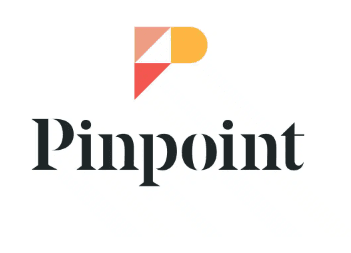
Expert Review: Pinpoint ATS earns its exceptional 92/100 rating through relentless focus on simplifying complex hiring while providing unlimited customer support. This distribution center recruitment software platform's straightforward interface doesn't require technical expertise to customize or operate effectively.
Expert Rating: 92/100 on Crozdesk (94/100 user satisfaction)
Key Features:
- Unlimited custom hiring workflows and job board multiposting
- Employee referral system supply chain with tracking and reward automation
- Diversity and inclusion tools with built-in tracking and reporting
- Unlimited team members with granular permission controls
- Open API enabling integration with 3,000+ third-party platforms through Zapier
Pros:
- Exceptional user satisfaction with a straightforward interface
- Unlimited custom workflows support unique warehouse operator recruitment platform processes
- Included unlimited customer support and training
- Scalable pricing structure supports companies at any growth stage
- Employee referral tools enhance recruitment quality and reduce time-to-hire
Cons:
- Less advanced AI features compared to newer competitors
- Higher pricing tier than some budget-focused alternatives
- Smaller built-in integration ecosystem than market leaders
- May require basic customization to optimize for specific logistics needs
Pricing: Pinpoint offers scalable pricing with custom quotes based on hiring volume, team size, and required features.
Case Study: A logistics company with complex multi-location hiring implemented Pinpoint to standardize their supply chain coordinator ATS process while maintaining flexibility for regional variations.
Why Logistics Companies Are Switching to ATS Platforms in 2025

The 2025 logistics landscape demands speed, precision, and scalability. Here's why logistics businesses are prioritizing logistics compliance recruitment implementation.
Tackling Hiring Challenges in the Supply Chain Sector
The logistics sector faces these specific recruitment obstacles requiring specialized transportation recruitment automation solutions:
- Labor shortages in skilled roles: The demand for CDL-qualified drivers, forklift operators, and warehouse management system experts exceeds available supply
- High candidate drop-off rates: Lengthy application processes cause 40-60% of candidates to abandon their applications before completion
- Competition from larger players: Global logistics companies attract talent with superior benefits and brand recognition
- Seasonal volume spikes: Festive seasons and peak shipping periods create sudden 30-40% surges in hiring requirements
- Skills mismatches: Many candidates lack familiarity with warehouse automation or data-driven logistics processes
An effective warehouse operations hiring software solution addresses these challenges directly:
- Simplified applications reduce abandonment by 20-30% with mobile-first, one-page application forms
- Candidate pipelines nurture talent during off-peak periods so you have warm candidates ready when demand spikes
- Skill-based matching identifies candidates whose experience aligns with specific logistics roles
- Automated outreach engages passive candidates before competitors do
Automating High-Volume Recruitment for Drivers, Packers & Managers
Logistics companies recruit across multiple role types simultaneously. Modern talent acquisition logistics applicant tracking system platforms enable parallel hiring at scale:
Driver recruitment automation:
- Post to 150+ job boards tailored for commercial driver audiences
- Pre-screen for CDL certification and driving history relevance automatically
- Schedule roadside or virtual interviews without back-and-forth emails
- Track background check software, transportation status, and medical certification completion
Warehouse packer and operative hiring:
- Handle 200+ applications per posting through AI screening
- Segment candidates by shift preference (day, night, weekend availability)
- Automate skills assessment, logistics recruitment for material handling and safety compliance
Logistics manager and coordinator hiring:
- Build talent pools for specialized roles requiring supply chain experience
- Use behavioral assessment integrations to predict job performance
- Collaborative scorecards let multiple hiring managers rate candidates simultaneously
Seasonal staffing automation:
- Build candidate pools 60-90 days before peak season
- Activate automated workflows to quickly re-engage past applicants for seasonal roles
- Manage temporary-to-permanent conversion workflows seamlessly
Improving Compliance, Accuracy, and Speed in Hiring
Compliance pressures have intensified in logistics recruitment, requiring a robust recruitment management system with transportation capabilities:
- EEOC reporting: Must track and report demographic data on all applicants
- Background checks: CDL drivers require extensive background verification
- Safety training documentation: Certain logistics roles require proof of OSHA training
- Data security: Applicant data must be encrypted, access-controlled, and protected
Modern staffing software logistics sector platforms provide built-in compliance infrastructure:
- Automated EEOC tracking captures demographics during application
- Audit trails document every action taken on a candidate record
- Consent management ensures compliance with privacy regulations
- Integration with background check software and transportation providers automates verification
- Certification tracking alerts recruiters when required credentials expire
- Role-based access controls restrict who can view sensitive applicant data
Speed improvements are dramatic: Companies reduce time-to-hire by 30-40% simply by eliminating manual resume screening logistics and scheduling tasks.
Key Features to Look for in a Logistics Applicant Tracking System
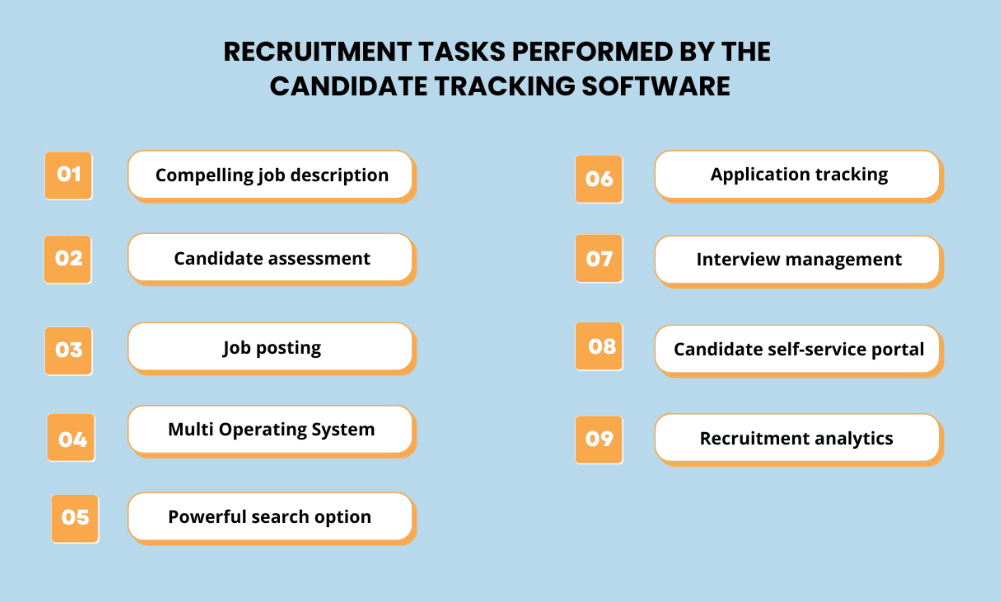
Not all talent management logistics recruitment platforms are created equal. When evaluating systems for logistics companies, prioritize these specific capabilities.
Multi-Location Job Posting and Candidate Tracking
Logistics companies operate across distributed networks. Your HR recruiting tools supply chain solution must support:
- Multi-location job posting: Post a single role to 5-6 different geographic locations, then track all applicants in one unified pipeline while filtering by location
- Regional hiring rules: Configure different application requirements, screening questions, or job descriptions for different regions
- Location-based candidate pools: Build separate talent pools for each warehouse or distribution center
- Centralized reporting: View hiring performance and metrics aggregated across all locations or broken down by region
- Branch-level hiring manager access: Allow local managers to participate in screening while maintaining corporate oversight
Why this matters: A company with 12 distribution centers needs to post driver roles simultaneously, but track applicants by facility. An ATS with true multi-location capabilities keeps this organized; spreadsheets create chaos.
Integration with HR, Payroll, and Fleet Management Tools
Logistics companies use specialized software stacks. Your ATS should integrate seamlessly with:
- HRIS/Payroll systems (Zoho People, BambooHR, Workday, SAP): Automatically transfer hire information to start onboarding and payroll processing
- Fleet management software: Sync driver information—licenses, certifications, vehicle assignments—between the ATS and fleet systems
- Warehouse management systems (WMS): Share inventory and staffing level data to forecast hiring needs
- Background check providers: Streamline CDL driver verification and criminal history checks
- Talent CRM tools: Nurture candidate relationships during off-peak periods
- Email and calendar systems: Send interview reminders, schedule meetings, and post updates directly
Integration eliminates redundant data entry, reduces errors, and creates a unified view of candidate information across systems.
AI Resume Screening and Skill-Based Matching
AI capabilities have become the competitive advantage in ATS selection:
- Smart resume parsing: AI extracts not just keywords but actual skills, experience duration, certifications, and relevant qualifications from unstructured resume text
- Contextual matching: Understands that "5 years logistics warehouse experience" is different from "5 years customer service retail"
- Skill gap identification: Flags candidates who have 80% of the required skills (potential candidates to upskill) vs. those missing critical qualifications
- Bias reduction: Data-driven scoring minimizes unconscious human bias by removing names and focusing purely on qualifications
- Predictive scoring: Some platforms predict a candidate's likelihood of accepting an offer or the probability of staying 12+ months
- Customizable ranking: Define which skills matter most—you can weight "CDL certification" as mandatory while treating "warehouse management system experience" as preferred
Real example: An ATS using traditional keyword matching ranks a candidate with "driving experience" equally to a CDL-certified professional. AI-powered matching correctly prioritizes the certified driver.
Mobile Accessibility for On-the-Go Recruitment
Logistics applicant tracking system operations run 24/7 across multiple facilities. Recruiters need:
- Fully responsive mobile interface: Not just a limited mobile app—complete ATS functionality on phones and tablets
- Offline capability: Access candidate information even without internet (syncs when connection returns)
- Mobile job posting: Create and post jobs directly from field locations
- Interview scheduling: Schedule, reschedule, and send video interview links from mobile devices
- Candidate evaluation: Review applications, add notes, and rate candidates on the go
- Push notifications: Receive alerts when new applications arrive or interview reminders are due
Why this matters: A distribution center manager making hiring decisions shouldn't need to return to the office to update candidate status.
Benefits of Using ATS for Logistics and Supply Chain Hiring

Faster Time-to-Hire and Reduced Manual Effort
Time-to-hire measures the days between a candidate entering your system and accepting an offer. ATS platforms reduce this dramatically:
- Automation of screening: AI processes 100+ resumes in minutes—what takes a recruiter 4 hours happens instantly
- Scheduled interviews: Automated calendar integration eliminates "Let me check my calendar... how about Tuesday?" email chains
- Workflow automation: Candidates automatically advance through stages based on preset rules
- Faster feedback: AI-powered interview summaries provide immediate candidate notes
Metrics from users:
- Reduces time-to-hire by 35-45%
- Decreases recruiter administrative work by 60-70%
- Cuts offer-to-start time by 10-15 days
Better Quality of Hires and Improved Retention
Logistics companies reduce hiring mistakes through ATS insights:
- Structured evaluation: Standardized scorecards ensure every candidate is assessed on the same criteria
- Diversity and inclusion data: Track hiring patterns to identify if you're reaching diverse candidate pools
- Skill alignment: Structured interviews and assessments identify candidates most likely to succeed
- Retention prediction: AI flags candidates statistically likely to stay 12+ months vs. those with high turnover risk
- Candidate experience tracking: Transparent communication throughout hiring improves offer acceptance rates
Real outcome: Companies using structured hiring and AI matching see:
- 20-25% improvement in new hire retention rates
- 15-20% fewer performance issues in the first 90 days
- 30% faster productivity ramp for new hires
Enhanced Data Security and Compliance Tracking
Handling sensitive applicant data responsibly builds trust and avoids legal exposure:
- Encryption and access controls: Data-at-rest and in-transit encryption, plus role-based access restrictions
- Audit trails: Every action on a candidate record is timestamped and traceable
- EEOC compliance: Automated tracking of demographic data and mandatory reporting generation
- Background check integration: Secure handling of sensitive background check results
- Data retention policies: Automated deletion of candidate data after legally required retention periods
- GDPR and privacy compliance: Consent tracking for candidates in EU jurisdictions
How to Choose the Right ATS for Your Logistics Business

Selecting an ATS is a significant investment—both financial and organizational. Use this framework to evaluate options.
Evaluate Features vs. Budget and Scalability
Small logistics Applicant Tracking System companies (under 50 employees):
- Budget: $50-150/month
- Look for: Simplicity, ease of use, all-in-one packages
- Recommended: Zoho Recruit, BambooHR, AvaHR
- Trade-off: Limited customization, fewer advanced features
Mid-market companies (50-500 employees):
- Budget: $300-1,500/month
- Look for: Advanced automation, multi-location support, customization
- Recommended: Workable, Lever, Greenhouse, iCIMS
- Trade-off: Higher complexity, steeper learning curve
Enterprise logistics operations (500+ employees):
- Budget: $2,000+/month (often custom quotes)
- Look for: Deep integrations, global compliance, enterprise security
- Recommended: Greenhouse, iCIMS, SAP SuccessFactors, Workday
- Trade-off: Long implementation timelines, significant training requirements
Budget evaluation questions:
- What's included in base pricing? (users, job postings, integrations)
- How much do add-ons cost? (AI screening, additional integrations, advanced analytics)
- Can the system scale with your growth?
- What's the implementation timeline and cost?
- Are there hidden onboarding or training fees?
Ensure Local Support and Cloud Security
For logistics companies spanning multiple regions:
- Local language and regulatory support: If you hire across countries, ensure the ATS supports local regulations (GDPR in Europe, specific compliance requirements in India, etc.)
- 24/7 technical support: Logistics recruitment doesn't pause for business hours. Ensure vendor support matches your operating schedule
- Cloud infrastructure reliability: Check vendor uptime guarantees (typically 99.5%+ uptime SLAs)
- Data residency options: Some companies require data to stay within specific geographic regions for compliance
- Disaster recovery and backups: Ensure data is backed up and recoverable if the vendor experiences an outage
Red flags:
- The vendor only offers business-hours support
- No documented security certifications (SOC 2, ISO 27001)
- Data must be stored on U.S. servers only (problematic for global companies)
Check for Industry-Specific Customization Options
Logistics is a specialized sector. Your ATS should support:
- Driver-specific workflows: Custom fields for CDL class, medical certification dates, vehicle assignments
- Warehouse role templates: Pre-built job descriptions and screening questions for packers, operators, logistics coordinators
- Shift and location management: Ability to segment candidates by availability for day/night/weekend shifts
- Seasonal hiring workflows: Automated reactivation of past seasonal candidates when demand peaks
- Safety and compliance tracking: Built-in or integrable fields for safety certifications, background check status, and rug screening results
Questions to ask vendors:
- "Can I create custom fields specific to CDL driver hiring?"
- "Do you have templates for warehouse operations roles?"
- "How do you handle multi-shift hiring across multiple locations?"
- "Can the system track both permanent and temporary/seasonal staffing?"
Future Trends in Logistics Recruitment Technology (2025 and Beyond)
The logistics recruitment landscape is evolving rapidly. Staying ahead of trends positions your company to attract top talent.
The Rise of AI and Predictive Hiring Analytics
AI capabilities in 2025 go far beyond keyword matching:
- Behavioral prediction: AI analyzes work history patterns, education, and test responses to predict candidate success probability and likely tenure
- Unconscious bias reduction: Structured scoring removes subjective human judgment, leading to more diverse hiring
- Skills gap bridging: AI identifies candidates with 70% of the required skills who could succeed with targeted training
- Talent marketplace integration: ATS connects to upskilling platforms so candidates can quickly gain certifications on demand
- Predictive attrition models: Understand which candidates are likely to stay 24 months vs. leave after 6 months based on historical data
Impact: Companies using predictive analytics see 35-40% improvement in hire quality and 20-25% improvement in retention rates.
Integration of ATS with Supply Chain Management Systems
Logistics ATS is evolving into a broader supply chain hiring platform:
- WMS integration: Warehouse management systems now feed real-time staffing levels to ATS, triggering automated job posting when inventory volumes spike
- Fleet management sync: Driver information, qualifications, and availability sync between ATS and fleet systems automatically
- Demand forecasting: Machine learning predicts hiring needs based on seasonal patterns, supply chain disruptions, and business growth
- Real-time capacity planning: Know immediately how hiring progress impacts on-time delivery and service capacity
- Cross-system reporting: Single dashboard shows hiring metrics alongside operational KPIs (vehicles on the road, inventory levels, delivery times)
Real application: When inventory spikes 30% week-over-week, the ATS automatically identifies understaffing and posts job openings across multiple channels simultaneously.
Automation, Remote Hiring, and Data-Driven Recruitment
The future of logistics hiring is hybrid and data-centric:
- AI-led video interviewing: Candidates record video responses to structured questions; AI analyzes tone, content quality, and engagement
- Asynchronous hiring workflows: Candidates apply, interview, and complete assessments on their schedule (not recruiter availability), accelerating time-to-hire
- Geolocation-based sourcing: Automatically target candidates within specific distances of your distribution centers to reduce relocation needs
- Diversity-focused sourcing: Proactive outreach to underrepresented groups in logistics (women in driving, diverse supply chain management talent)
- Candidate experience personalization: Each candidate receives tailored communication based on their role interest and engagement level
Expert Insights — Why ATS Is the Future of Logistics Hiring

Industry Perspectives from Leading Recruiters
What logistics recruitment leaders are saying about ATS adoption:
"ATS is no longer a luxury—it's a necessity to stay competitive." — Talent acquisition managers at major e-commerce and logistics firms report that manual hiring processes can no longer keep pace with the velocity and scale of logistics recruitment demand.
"AI-powered screening cuts our time-to-hire from 25 days to 10 days without sacrificing quality." — Recruiters highlight that modern AI screening doesn't just speed things up; it improves quality by removing subjective bias and identifying stronger candidate matches.
"Integration between ATS, payroll, and fleet systems is essential." — Operations and HR leaders emphasize that disconnected systems create chaos. An integrated ATS becomes the single source of truth for workforce data.
"The candidate experience through ATS directly impacts offer acceptance rates." — Companies providing transparent, mobile-friendly applications and frequent status updates see 15-20% higher offer acceptance rates.
Real Case Studies from Logistics Companies Using ATS
Case Study 1: Regional Warehouse Network (100-150 employees)
- Challenge: Growing company with 6 distribution centers, each hiring independently. No visibility into hiring progress, inconsistent hiring standards
- Solution: Implemented Workable ATS with multi-location job posting and centralized candidate tracking
- Results: Time-to-hire dropped from 30 days to 16 days. Hiring costs per person decreased 28%. New hire retention improved from 68% to 82% in first year
Case Study 2: Trucking Company (200+ CDL drivers)
- Challenge: High turnover (45% annually), lengthy manual recruiting process, difficulty differentiating between qualified and marginal CDL candidates
- Solution: Adopted Greenhouse ATS with AI resume screening specifically tuned for driver qualifications and integrated background check automation
- Results: Time-to-hire improved 40%. Annual turnover reduced to 32% (13-point improvement). New driver success rate increased from 65% to 78%
Case Study 3: E-commerce Fulfillment Network (Seasonal hiring of 500-1000 staff)
- Challenge: Massive seasonal hiring spikes during peak season. The manual process couldn't handle volume. Lost candidates to faster-hiring competitors
- Solution: Implemented Zoho Recruit with workflow automation and mobile job posting 90 days before peak season. Built seasonal talent pools
- Results: Reduced hiring timeline from 45 days to 18 days during peak season. Increased seasonal worker-to-permanent conversion rate from 8% to 22%
Building a Smarter, More Efficient Workforce with Technology
The strategic advantage of modern ATS:
- Speed attracts talent: In competitive labor markets, offering the fastest hiring process wins candidates
- Quality improves outcomes: Structured, data-driven hiring leads to better performers and longer tenure
- Compliance protects the company: Automated EEOC tracking and audit trails provide legal protection
- Scalability enables growth: ATS allows companies to double hiring volume without proportionally increasing recruiting staff
- Data drives decisions: Analytics reveal which sourcing channels work best, which roles have longest time-to-fill, and where diversity gaps exist
Specialized ATS Solutions for Logistics Subsectors
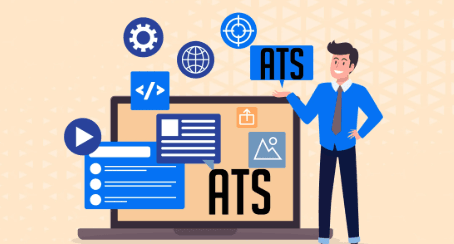
ATS for Third-Party Logistics (3PL) Providers
Third-party logistics providers face unique recruitment challenges that require specialized ATS for 3PL recruitment capabilities. 3PL companies must simultaneously manage recruitment for multiple client contracts, each with distinct requirements, compliance standards, and volume fluctuations.
Key features for 3PL recruitment:
- Client-specific hiring workflows: Separate pipelines for different client contracts with customized screening criteria
- Rapid scaling capabilities: Ability to ramp up hiring for new contracts within 2-3 weeks
- Multi-client reporting: Track recruitment metrics separately for each client while maintaining centralized oversight
- Flexible candidate reassignment: Move qualified candidates between client projects as needs change
- Contract-specific compliance: Maintain different background check requirements, certifications, and safety standards per client
Best ATS options for 3PL: ApplicantStack and JazzHR offer the flexibility and affordability 3PL providers need to manage complex, multi-client recruitment operations efficiently.
ATS for Warehouse and Distribution Center Operations
Warehouse and distribution center operations require specialized warehouse staffing ATS software that handles high-volume, shift-based recruitment across multiple locations. These facilities experience dramatic seasonal fluctuations and require rapid candidate evaluation for roles ranging from entry-level packers to experienced warehouse managers.
Critical features for warehouse recruitment:
- Shift-based candidate segmentation: Filter and match candidates by day/night/weekend availability
- Skills assessment integration: Test candidates on forklift operation, material handling, and safety knowledge
- Physical requirements screening: Identify candidates who meet lifting, standing, and physical activity requirements
- Multi-location coordination: Manage recruitment for 10+ distribution centers from a centralized dashboard
- Seasonal candidate pools: Maintain databases of previous seasonal workers for rapid re-engagement
Recommended platforms: BreezyHR and Zoho Recruit provide excellent warehouse-focused features at price points suitable for regional distribution networks.
ATS for Fleet and Driver Recruitment
Fleet management companies require specialized ATS for fleet driver recruitment that addresses the unique compliance, certification, and safety requirements of commercial driver hiring. Driver recruitment involves extensive background verification, medical certification tracking, and ongoing license monitoring.
Essential features for fleet recruitment:
- CDL-specific screening: Automated verification of CDL class, endorsements, and license status
- DOT compliance tracking: Monitor medical certification expiration, drug testing completion, and safety training
- Driving record integration: Connect with MVR (Motor Vehicle Record) providers for automatic driving history checks
- Safety score calculation: Rank candidates based on accident history, violations, and safety training completion
- Route and location matching: Match drivers to specific routes, territories, or equipment types
Top choices for fleet recruitment: Greenhouse and Workable offer robust compliance features and extensive integration capabilities essential for fleet management companies.
ATS for Supply Chain Management and Logistics Coordinator Roles
Professional supply chain roles—logistics coordinators, supply chain analysts, procurement specialists—require different supply chain coordinator ATS approaches than high-volume warehouse hiring. These positions demand sophisticated skill matching, behavioral assessments, and relationship-based recruitment.
Key capabilities for professional logistics recruitment:
- Advanced skill taxonomy: Detailed categorization of supply chain software experience (SAP, Oracle, JDA, etc.)
- Behavioral assessment integration: Predict candidate fit for analytical, problem-solving roles
- Longer nurture cycles: Maintain relationships with passive candidates over 3-6 month periods
- Portfolio and project evaluation: Review case studies, process improvement projects, and supply chain optimizations
- Salary benchmarking: Access real-time compensation data for specialized supply chain roles
Recommended solutions: Lever and Recruitee excel at relationship-based recruitment for professional logistics positions, offering CRM capabilities and sophisticated candidate nurturing.
Advanced ATS Implementation Strategies for Logistics Companies

Phased ATS Rollout for Multi-Location Operations
Implementing distribution center recruitment software across multiple facilities requires careful planning to ensure consistent adoption while respecting local hiring practices.
Phase 1: Pilot program (Weeks 1-4)
- Select 2-3 locations representing different hiring volumes and complexity levels
- Train local recruiting teams on core ATS functionality
- Migrate active job postings and in-process candidates to the new system
- Gather feedback on usability issues and workflow adjustments needed
Phase 2: Regional expansion (Weeks 5-8)
- Roll out to the remaining locations within the pilot region
- Standardize hiring workflows while allowing location-specific customization
- Establish regional champions who provide peer support
- Create location-specific reporting dashboards
Phase 3: Enterprise deployment (Weeks 9-12)
- Deploy to all remaining locations with refined workflows
- Implement centralized reporting and analytics
- Establish corporate oversight while maintaining local autonomy
- Launch a continuous improvement process based on system metrics
Phase 4: Optimization (Months 4-6)
- Analyze hiring data to identify bottlenecks and improvement opportunities
- Implement advanced features like AI screening and predictive analytics
- Integrate with additional systems (payroll, fleet management, WMS)
- Develop a best practices library for sharing across locations
Integrating ATS with Existing Logistics Technology Stack
Successful logistics compliance recruitment requires seamless integration between your ATS and existing systems. Modern logistics companies typically operate 8-12 different software platforms that need to share candidate and employee data.
Critical integration points:
HRIS and Payroll Systems:
- Automatic transfer of new hire data from ATS to HRIS eliminates duplicate data entry
- Sync employee status changes (promotions, transfers, terminations) back to ATS for internal mobility tracking
- Share compensation data to ensure job postings reflect current market rates
Fleet Management Systems:
- Sync driver qualifications, licenses, and certifications between systems
- Track certification expiration dates and trigger re-credentialing workflows
- Update driver availability based on route assignments and schedule changes
Warehouse Management Systems (WMS):
- Share real-time staffing levels to trigger automated hiring when understaffed
- Coordinate shift schedules with candidate availability during the hiring process
- Track productivity data to identify characteristics of high-performing hires
Background Check and Drug Testing Providers:
- Automatically initiate background checks when candidates reach specific hiring stages
- Receive real-time status updates on verification progress
- Flag candidates with disqualifying findings for immediate review
Learning Management Systems (LMS):
- Automatically enroll new hires in required training programs
- Track completion of safety certifications and compliance training
- Identify skill gaps during recruitment and target training accordingly
Optimizing Candidate Experience in Logistics Recruitment
Logistics recruitment often targets candidates who may not be comfortable with complex online processes. Warehouse operator recruitment platform design must prioritize simplicity, mobile accessibility, and transparent communication.
Mobile-first application design:
- Keep applications to 5-7 minutes maximum completion time
- Use large buttons and simple forms optimized for smartphone screens
- Allow candidates to save progress and return later
- Enable document uploads via smartphone camera
Multi-channel communication:
- SMS for time-sensitive communications (interview reminders, schedule changes)
- Email for detailed information (job descriptions, offer letters, onboarding documents)
- Phone calls for a personal touch at critical decision points
- In-app messaging for quick questions and status updates
Transparency throughout the process:
- Clearly communicate the expected timeline and next steps after each interaction
- Provide real-time application status updates (received, under review, interview scheduled)
- Set expectations about background checks and verification timelines
- Explain reasons for rejection with constructive feedback when possible
Reducing friction points:
- Eliminate unnecessary screening questions that don't predict job success
- Offer multiple interview scheduling options, including evenings and weekends
- Provide virtual interview options for initial screening stages
- Simplify background check consent with mobile-friendly forms
Measuring ATS Success: Key Metrics for Logistics Recruitment
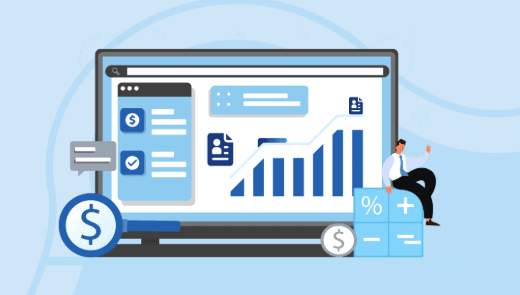
Time-to-Hire and Time-to-Fill Metrics
Time-to-fill measures calendar days from job posting to offer acceptance. Time-to-hire measures days from candidate application to offer acceptance. Both metrics are critical for transportation recruitment automation effectiveness.
Industry benchmarks for logistics:
- Entry-level warehouse positions: 12-18 days average time-to-fill
- CDL driver positions: 18-25 days average time-to-fill
- Logistics coordinator roles: 25-35 days average time-to-fill
- Supply chain management positions: 35-45 days average time-to-fill best applicant tracking system uk
How ATS impacts these metrics:
- AI screening reduces initial resume review from 4 hours to 15 minutes per position
- Automated interview scheduling eliminates 3-5 days of back-and-forth communication
- Workflow automation moves candidates through stages without manual intervention
- Mobile accessibility enables faster decision-making from distributed hiring teams
Quality of Hire and Retention Metrics
Quality of hire measures new employee performance, cultural fit, and long-term success. Retention metrics track how long new hires stay with the company.
Key indicators:
- 90-day performance ratings: Track supervisor assessments of new hire performance at 90 days
- First-year retention: Percentage of new hires still employed after 12 months
- Time to productivity: Days until new hire reaches expected performance levels
- Promotion rate: Percentage of hires promoted within 24 months
- Hiring manager satisfaction: Survey hiring managers on new hire quality
ATS features that improve quality:
- Structured interviews ensure consistent evaluation across candidates
- Skills assessments predict job performance before hiring
- Behavioral screening identifies cultural fit and long-term potential
- Reference check automation provides deeper insights into past performance
- Predictive analytics flag candidates likely to succeed long-term
Cost-per-Hire and Recruitment ROI
Cost-per-hire includes all recruitment expenses divided by the number of hires. Recruitment ROI compares hiring costs against productivity and retention benefits.
Components of cost-per-hire:
- Recruiter salaries and benefits (allocated by time spent)
- Job board fees and advertising costs
- ATS subscription fees
- Background check and drug testing expenses
- Career fair and recruiting event costs
- Employee referral bonuses
- Agency fees for temporary or contract placements
How ATS reduces costs:
- Reduced time-to-hire means lower cost for unfilled positions
- Higher retention reduces turnover replacement costs
- Improved sourcing efficiency reduces job board spending
- Automated screening reduces recruiter hours per hire
- Better quality of hire reduces training and ramp-up costs application tracking system uk
ROI calculation example:
- ATS subscription: $500/month ($6,000/year)
- Reduced time-to-hire saves $25,000 in unfilled position costs
- Improved retention saves $40,000 in turnover costs
- Increased recruiter efficiency saves $30,000 in labor costs
- Total annual ROI: $89,000 benefit - $6,000 cost = $83,000 net benefit (1,383% ROI)
Source Effectiveness and Channel Analytics
Source tracking identifies which job boards, social media platforms, and recruiting channels produce the best candidates. Modern recruitment analytics logistics platforms provide detailed source attribution.
Key source metrics:
- Application volume by source: How many candidates apply from each channel
- Quality score by source: Average performance ratings of hires from each channel
- Cost per applicant by source: Total spending divided by applications received
- Time-to-hire by source: How quickly candidates from each source move through the pipeline
- Retention by source: How long hires from each source stay with the company
Optimizing source mix:
- Invest more in high-quality, low-cost sources
- Test new channels with small budgets before scaling
- Customize job descriptions for each source's audience
- Track source effectiveness separately for different role types
Conclusion — Empower Your Logistics Applicant Tracking System Hiring with the Right ATS

How Modern ATS Tools Drive Recruitment Success
Logistics companies operating without modern warehouse operations and hiring software platforms are leaving a tremendous opportunity on the table. Manual hiring processes:
- Lose qualified candidates to faster-hiring competitors
- Miss qualified passive candidates who aren't actively job-seeking
- Consume recruiter time on administrative work instead of relationship-building
- Create inconsistent hiring experiences that damage employer's brand
- Generate incomplete compliance documentation and audit risks applicant tracking system software uk
An effective talent management logistics recruitment solution transforms recruitment into a strategic competitive advantage:
- Speed: Hire 30-45% faster without compromising quality
- Scale: Handle massive seasonal hiring surges without adding recruiting staff
- Quality: Use data-driven hiring to improve retention and performance
- Compliance: Automated tracking ensures legal adherence and audit readiness
- Culture: Create a professional, transparent candidate experience that strengthens your employer brand best ats systems uk
Why 2025 Is the Perfect Time to Upgrade Your Hiring Tech
The logistics industry is entering a transformative period:
- AI and automation are mainstream, no longer emerging technology
- Candidate expectations have shifted toward mobile, convenient, transparent hiring experiences
- The competitive talent war is intensifying, particularly for CDL drivers and warehouse management talent
- Regulatory compliance is tightening, making manual tracking riskier and more expensive
- Supply chain volatility demands flexibility, requiring rapid scaling and descaling of workforces
Companies that implement modern HR recruiting tools and supply chain platforms in 2025 will:
- Hire faster and attract better talent
- Build stronger, more diverse teams
- Improve new hire success rates and retention
- Reduce recruitment costs per hire
- Create a technology-forward employer brand that attracts innovation-minded talent ats systems uk
Taking Action: Your ATS Implementation Roadmap
Step 1: Assess your current recruitment challenges (Week 1)
- Document current time-to-hire, cost-per-hire, and retention metrics
- Identify pain points in your existing hiring process
- Survey hiring managers and recruiters about their biggest frustrations
- Quantify the cost of unfilled positions and turnover
Step 2: Define your ATS requirements (Week 2)
- List must-have features based on your logistics recruiting needs
- Determine budget range and expected ROI timeline
- Identify required integrations with existing systems
- Establish evaluation criteria for vendor comparison
Step 3: Evaluate and demo top platforms (Weeks 3-4)
- Schedule demos with 3-5 ATS vendors that match your requirements
- Request customized demonstrations using your actual job postings
- Ask about implementation timeline, training, and ongoing support
- Check references from other logistics companies using the platform
Step 4: Pilot and implement (Weeks 5-12)
- Start with a pilot program at 1-2 locations
- Train recruiting teams and hiring managers thoroughly
- Migrate existing candidates and job postings to new system
- Gather feedback and refine workflows before full rollout
Step 5: Optimize and scale (Months 4-6)
- Analyze recruitment metrics to identify improvement opportunities
- Implement advanced features like AI screening and predictive analytics
- Expand integrations with fleet management, WMS, and other systems
- Develop best practices and share across the organization ats systems uk
The time to upgrade is now. The right HR software logistics industry investment delivers returns within the first hiring cycle through faster hiring, better-quality candidates, and reduced administrative overhead.
Start your ATS evaluation today. Schedule demos with 2-3 top platforms, focus on multi-location job posting capabilities and integration flexibility, and prioritize logistics-specific customization. Within weeks, you'll be hiring smarter, faster, and with greater confidence than ever before.
Ready to transform your logistics recruitment? Modern staffing software logistics sector solutions like Pitch N Hire, Workable, and Greenhouse are helping logistics companies hire 40% faster while improving candidate quality. Don't let outdated hiring processes hold your logistics operation back—invest in the right ATS today and build the exceptional team your supply chain deserves.
Applicant Tracking System for Recruiters
Best Applicant Tracking System 2026 | Top ATS Software Compared
Best Applicant Tracking System 2026 USA | Top ATS Software
Best Applicant Tracking System 2026 UK | Top ATS Platforms
Best Applicant Tracking System 2026 Canada| Top ATS Software
Best Applicant Tracking System India 2026
Best Applicant Tracking System Online 2026 | Top 10 ATS
ATS Recruitment Software Comparison | Best ATS Comparison
Best ATS for Small Business Software
Best Applicant Tracking System 2026 Australia | Top ATS Software
ATS for High Volume Hiring 2026
